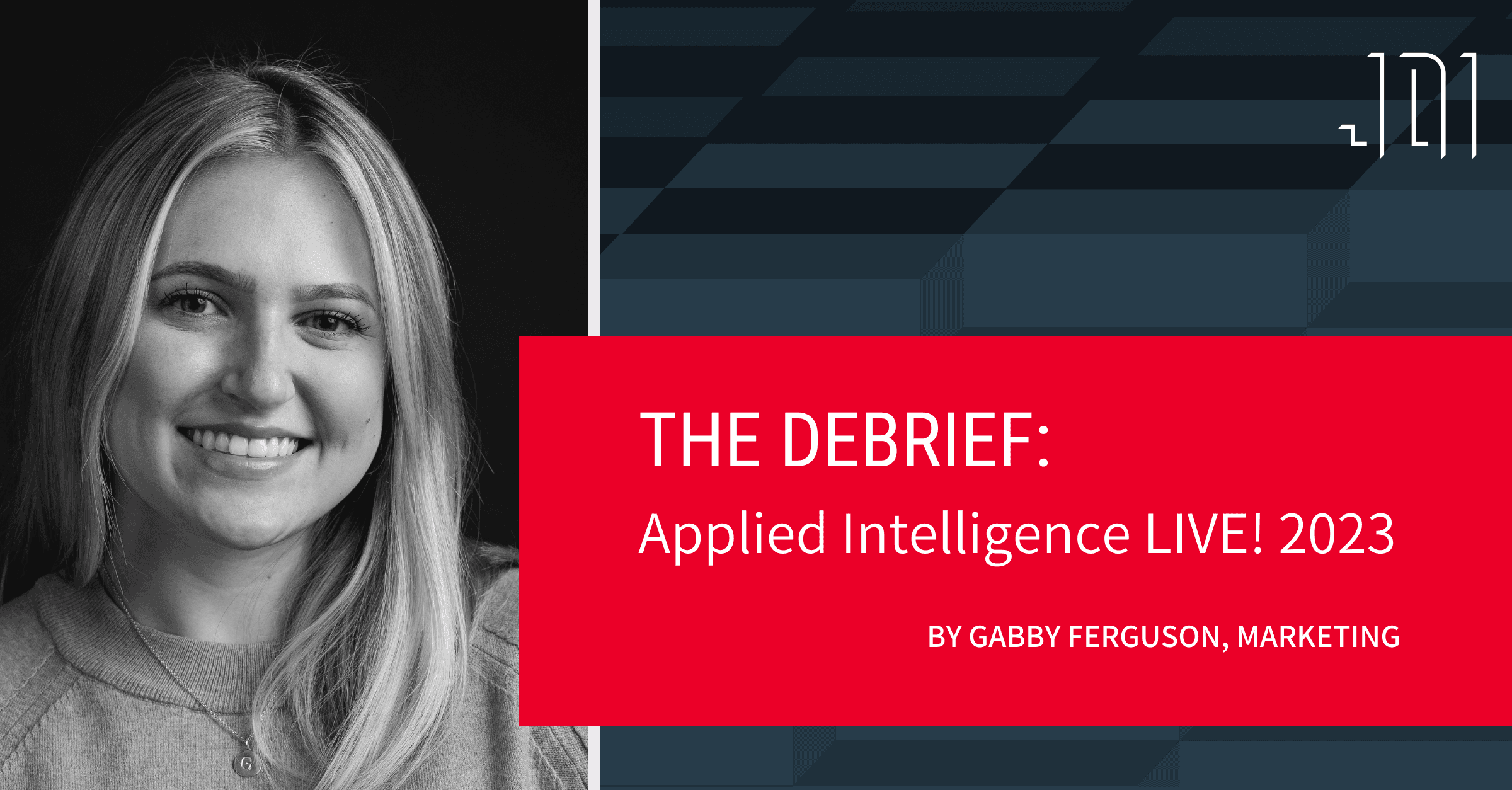The Debrief: Applied Intelligence LIVE! Austin 2023
For the first time, Informa Tech’s long-running IoT World Conference & Expo, AI Summit, and the Quantum Computing Summit merged under one event this year, with the new name Applied Intelligence Live! Austin, taking place at the Palmer Event Center on September 20-21. Jenalea Howell, Vice President of AI & IoT Markets at Informa Tech, explained that the philosophy behind the consolidation was, “In today's digital ecosystem, it's not about the success of individual technologies, but rather the success of your entire tech stack, working seamlessly together.”
In short, this conference brought a message of convergence: across data science, AI, IoT, and quantum technologies, this is the key to unlocking the next wave of innovation. With dozens of technology-focused stages, panels, and workshops, with topics from generative AI’s role in combating climate change to smart cities contributing to civic engagement and beyond, the conference was a surprisingly intimate platform to listen, learn, and discuss with leaders across industries, from startups to even big oil.
Walking away from the conference, it was an optimistic reminder that we are in an incredibly exciting time for the technology industry. In fact, JDI’s hometown of Austin is in a very unique position to foster the next era of convergence in emerging and transformative technologies.
Austin at the Center of Convergence
The opening panel kicked off with what local tech leaders called “Austin’s Role in Powering the US Tech Ecosystem.” Across panelists, there was a clear consensus that while Austin isn’t the biggest or baddest in the global tech ecosystem by any means, the city already has a unique historical foundation laying the perfect foundation for convergence.
Coined as “Silicon Hills” in the '80s, Austin housed early giants across hardware, enterprise software, and semiconductor industries, including Dell, Trilogy, and AMD to name a few. Austin’s attraction to this day has been attributed to its business-friendly environment – the “Texas Wide Open for Business” movement has worked, thanks to no corporate or personal income tax and a lower cost-of-living among other factors.
Today, Austin is the home to 5,500 startups with multiple tech giants, and more moving to Texas’ capital every week. In 2022, Austin-based startups raised roughly $5 billion in funding alone. Rebecca Taylor, Interim Executive Director at UT’s Austin Technology Incubator (ATI), referred to Austin as a “garage band,” referencing the inherent creative and collaborative tech culture of the city. Over the years, dozens of startup accelerators and incubators have formed, including Capital Factory and DivInc, fostering this sense of community and initiative across early-stage companies and big tech.
Notably, young, top-tier talent is being empowered at UT Austin’s ATI – an incubator helping bring emerging deep tech companies to market. ATI member companies have reportedly had more than 10 IPOs, 50 mergers and acquisitions, and over $2B of capital raised over 3 decades. It’s the longest active technology incubator in the United States.
Incubators and accelerators are an important part of the tech commercialization pipeline, but they signal only the first stages of growth. Both in the sense for the ideas themselves, and as macro-indicators of a city’s potential for a startup scene. What truly is fueling Austin’s growth is the rapidly growing number of VCs in the area – including ATX Venture Partners, S3 Ventures, and Silverton Partners. When founders no longer have to get on a jet to San Francisco or New York City to secure funding, and instead can work with firms already in their hometown is a true indicator of Austin’s advanced startup ecosystem.
Collaboration across interdisciplinary technology and science is a key differentiator Austin can grow to further establish innovation dominance. There was a lot of excitement throughout the conference for the Texas CHIPS Act. The greater Austin area is already home to Nvidia, AMD, and Samsung, and this key piece of legislation will only bring more commitment to microchip research and manufacturing.
Trends + Shoutouts
Aside from the excitement around Austin, there were dozens of sessions fostering conversations around convergence – almost too many piqued my interest and many overlapped, requiring me to pick and choose. Here are some of the notable topics of conversation from panels or companies I saw:
Vertical AI
Romi Mahajan, CEO of ExoFusion, gave a keynote presentation on the practicality of AI. Currently, the majority of us refer to AI generically, which is helpful for wide-use adoption, but not for focused deployment. AI remains in a hypothetical state -- nebulous and largely rhetorical. Instead, Mahajan argued for operationalization of AI, that hones in on the real world solutions, not a catch-all. He gave a high-level framework on how to build a solution then operationalize AI to successfully bring it to reality.
The closing question of the presentation asked, “how do you know when AI has been operationalized?” According to Mahajan, it’s when we stop talking about it. When the everyday enterprise can engage with AI, that’s where the disruption and solution actually takes place.
Cities are Getting Smarter on the Back End
In its truest sense, citizen engagement is meant “for you, not to happen to you” according to Jonathan Rewers, Chief Strategy Officer for the City of San Francisco. He also claimed technology is the enabler to solve the problems that you want to solve. While no city is the same, it’s no secret that the US government is notoriously behind on technology – they are risk-averse and are far from catching up.
According to panelists, operational efficiency is a service delivery – and technology is an enabler. For example, while it might seem obvious, by digitizing citizen papers, you make systems and storage more efficient, and prevent many problems – that’s how far behind we are. Instead of waiting for weekly City Hall’s to hear people yell and voice their problems, you can proactively anticipate the issues with surveys and feedback from data. There's so many opportunities to transparently systematize data to benefit both the government and its people. The government, while bureaucratically slow, will continue to lean on technology.
Machine Learning in Green Architecture and Building Management
Using AI to combat the 15% of the world’s carbon emissions that comes from heating and cooling buildings, Montreal-based BrainBox drastically reduces building owners’ energy and emissions through predictive models. This technology anticipates each building’s specific conditions throughout the day using machine learning to make multiple adjustments per hour to keep costs and energy usage as low as possible. This technology has been installed in 100 million square feet of commercial real estate and is growing globally.
Convergence is a game changer in deep tech applications – by combining these emerging technologies, it unlocks the potential to solve some of the world’s biggest problems. Even more heatening was seeing the potential for some of the biggest breakthroughs to happen in our own backyard! For those in the emerging tech sector, take note – Applied Intelligence! Austin is shaping up to be an inside look at the next great wave of innovation.




